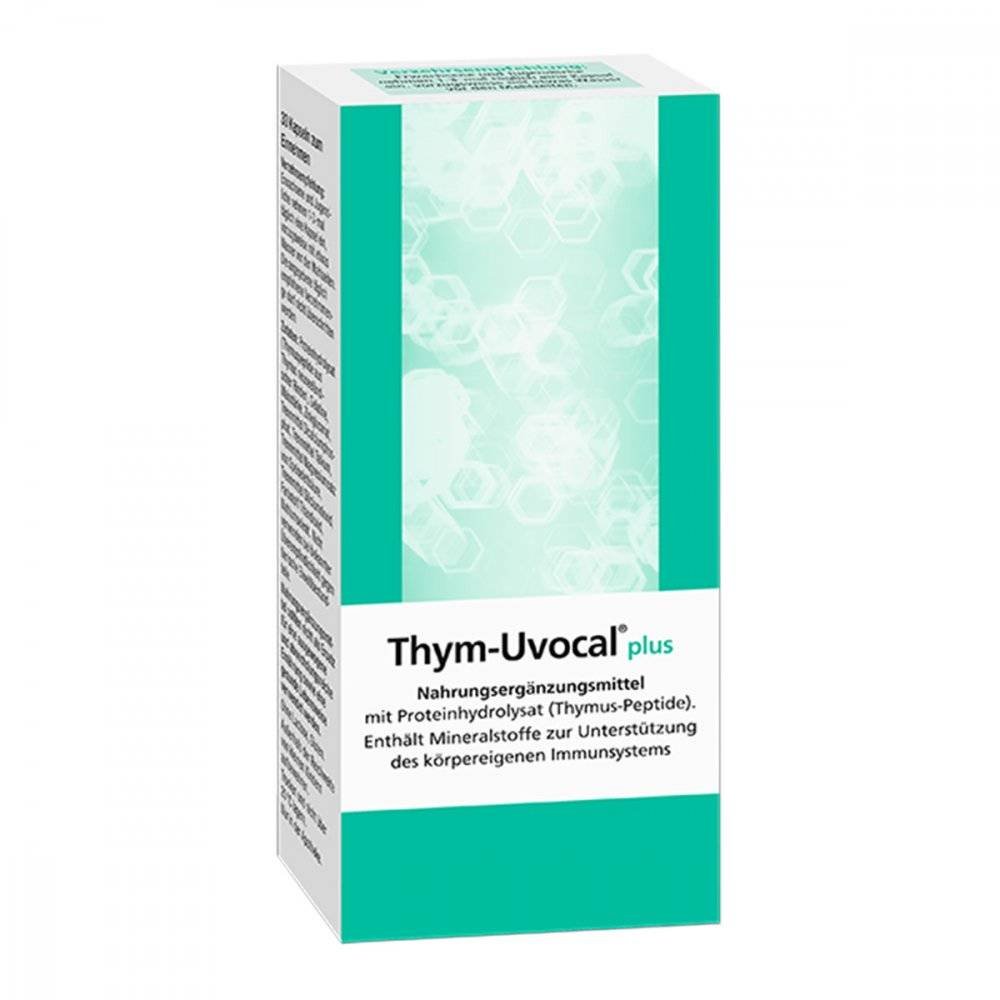An optimally functioning immune system consists of an interaction between certain cells, signal substances and tissues and, along with the nervous system, is one of the most complex systems in our body. But not only in the autumn and winter months, our body’s defenses are particularly demanding due to the cold, wet weather and the dry heating air. Even particularly challenging times with unexpected health risks put our immune system to a tough test. A small and inconspicuous organ that sits behind our breastbone has a particularly important function here – the thymus or the thymus gland. While doctors puzzled for a long time what function it had and the ancient Greeks considered it the “seat of the soul”, the thymus was deciphered in the early 1960s as an important immune organ in which the maturation and formation of defense cells takes place. The special importance of the thymus gland or its peptides for a successful immune defense is now undisputed.
Ein optimal funktionierendes Immunsystem besteht aus einem Zusammenspiel zwischen bestimmten Zellen, Signalstoffen und Geweben und gehört neben dem Nervensystem zu den komplexesten Systemen im unserem Körper. Doch nicht nur in den Herbst- und Wintermonaten wird unseren körpereigenen Abwehrkräften aufgrund des nasskalten Wetters und der trockenen Heizungsluft besonders viel abverlangt. Auch besonders herausfordernde Zeiten mit ungeahnten Gesundheitsrisiken stellen unser Immunsystem auf eine harte Probe. Einem kleinen und unscheinbaren Organ, das hinter unserem Brustbein sitzt, kommt hierbei eine besonders wichtige Funktion zu – dem Thymus bzw. der Thymusdrüse. Während Mediziner lange Zeit rätselten, welche Funktion er hat und die alten Griechen ihn für den „Sitz der Seele“ hielten, entschlüsselte man in den frühen 1960er Jahren den Thymus als ein wichtiges Immunorgan, in dem die Reifung und Ausbildung von Abwehrzellen stattfindet. Inzwischen ist die besondere Bedeutung der Thymusdrüse bzw. ihrer Peptide für eine erfolgreiche Immunabwehr unumstritten.









 For Kids
For Kids













